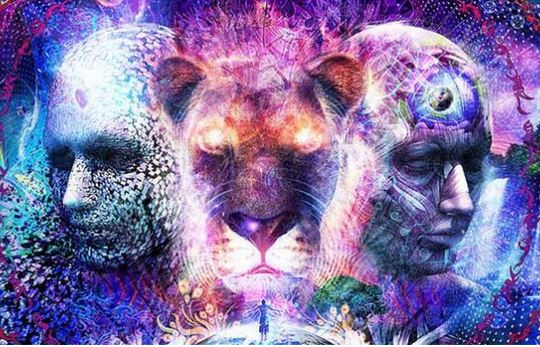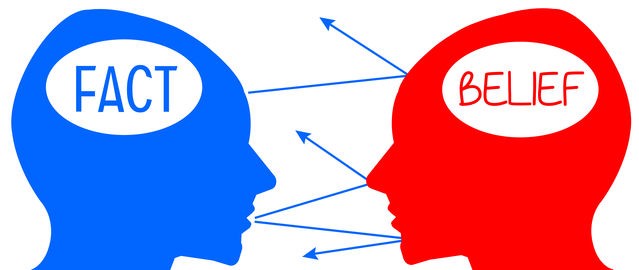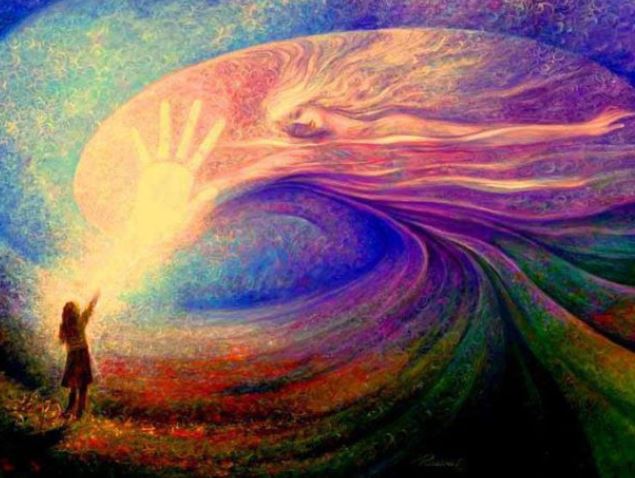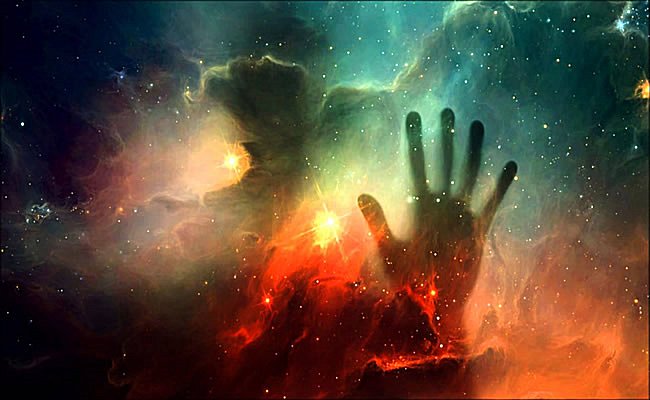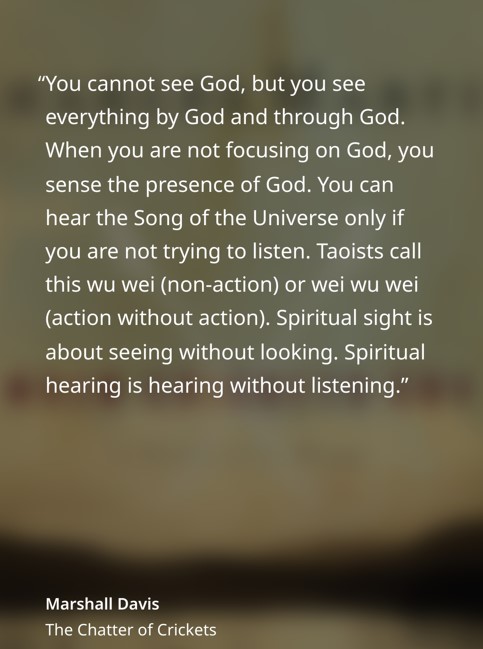Deus Ex Machina
Consciousness Is Now The God In Our Machine
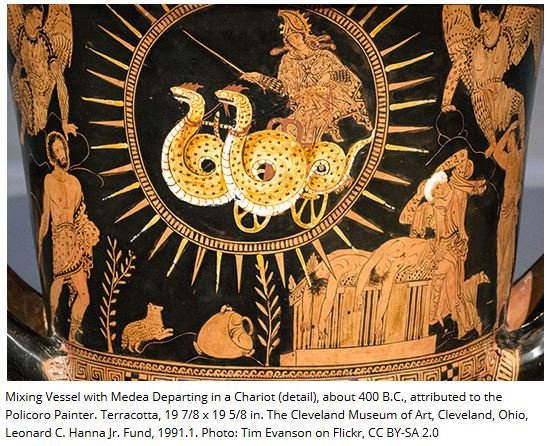
What is Deus Ex Machina?
The original meaning of Deus Ex Machina is the god in the machine, or god from the machine. It refers to the machine, or crane, that was used to lower an actor depicting a god onto the stage in a Greek drama.
Frequently the god would appear suddenly and provide a resolution to the dramatic crises that were the subject of the play, although not always....
The image above depicts a scene in Euripedes tragedy "Medea". Medea, the ex wife of mythical Greek hero Jason leader of the Argonauts, has murdered their 2 sons as revenge on Jason's infidelity and marriage to a rival, and drives a chariot containing the bodies of their 2 sons into the sky.
In case you were wondering how this was possible - the chariot was provided to Medea by her grandfather the sun god...
Think of this as the ancient Greek equivalent of a typical TV domestic drama with a "Thelma and Louise" ending!
Deus Ex Machina as Divine Intervention
Over the time, deus ex machina came to mean "unexpected salvation", that could be as a result of divine intervention or at least a solution that appears out of nowhere to resolve a problem.
The purpose and scope of this article
In this article we are redefining deus ex machina, the god in our machine, as consciousness.
This content of this article is written from personal experience and to that extent I am qualified to say what I say, but I am not trained in science or mathematics nor am I fluent in metaphysical discourse.
The sole purpose of this article is firstly to offer a personal, experience-based perspective on consciousness and secondly, to offer some potential ways of exploring, living with and developing your connection and relationship with consciousness.
We are now going to take a look at some of the following aspects of deus ex machina:
- Echoes Of Deus Ex Machina
- Deus Ex Machina as Consciouness
- Finding The Deus Ex Machina
- Beliefs And The Deus Ex Machina
- Engaging With The Deus Ex Machina
- Communicating With The Deus Ex Machina
- Living With The Deus Ex Machina
Echoes Of Deus Ex Machina
The Ghost In The Machine
Gilbert Ryle
The phrase "The Ghost In The Machine" echoes deus ex machina and was first used by Gilbert Ryle (1900–1976) who was a British philosopher, primarily known for his critique of 17th century Dutch mathematician and philosopher Rene Descartes who is remembered for his advocacy of duality or what became known as Cartesian dualism.
The concept of the duality of mind and body, frequently referred to as the "mind-body problem", suggests that the mind inhabits the body and is a spiritual entity that can still exist when separated from the body.
Ryle's ghost is the mind in the machine-body.
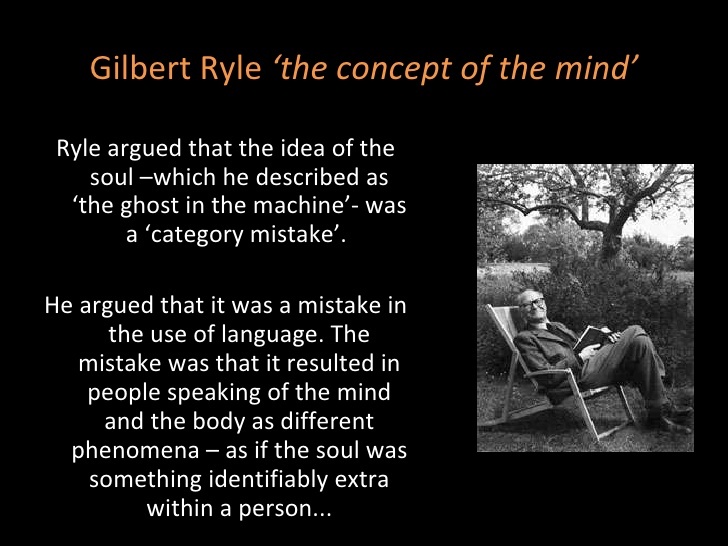
Arthur Koestler
Arthur Koestler (1905 –1983) was a Hungarian British author and journalist. The phrase "The Ghost In The Machine" was popularised by his book of that title.
Koestler was writing in the period of the cold war when we all lived under the very real threat of mutual assured destruction [MAD] by the nuclear weapons held by the former USSR and USA. Koestler, as with Ryle, echoes deus ex machina.
Koestler's ghost is the darker aspect of human nature.
"...the pathology of the human mind, notably man's predisposition towards self destruction."
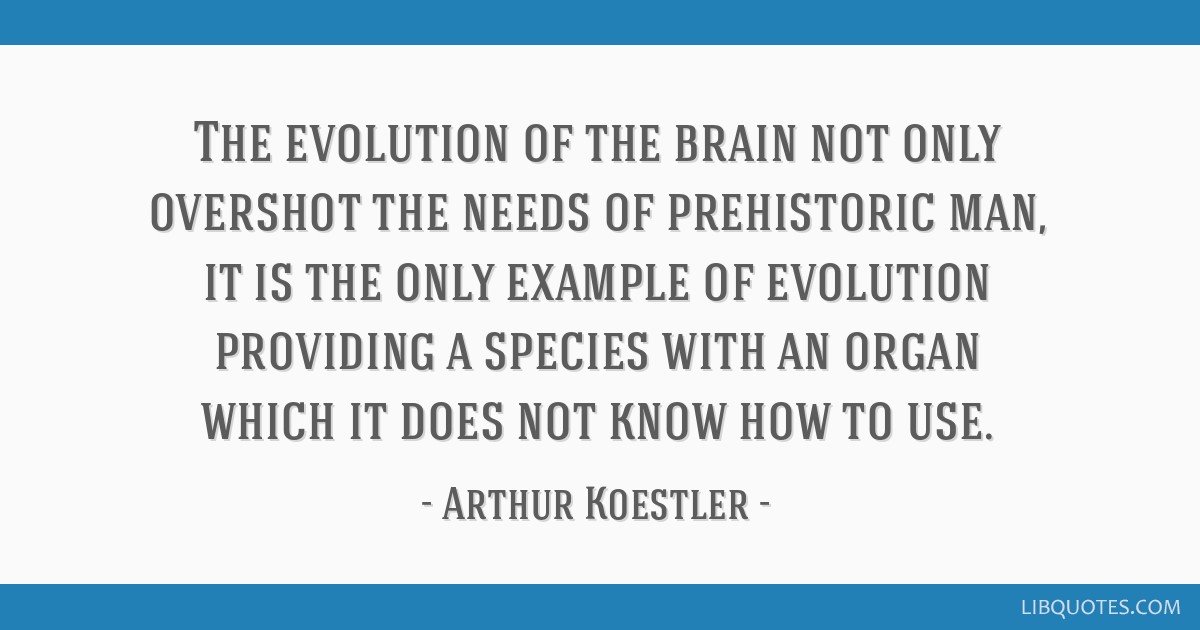
Deus Ex Machina as Consciousness
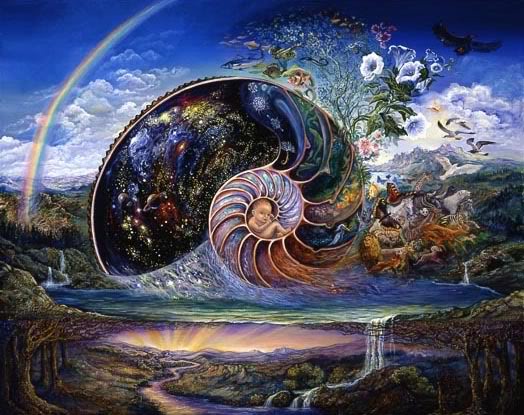
The world has moved on a long way from the era of Ryle and Koestler with developments in research and understanding in the fields of science in general, quantum physics in particular, neurology, psychology, metaphysics and noetic science to the extent that:
We live in a universe of Matter + Energy + Consciousness.
The Consciousness Conundrum
The difficulty with consciousness is summarised below, is it "this" as described in the left column or "that" as described in the right column
|
Subjective Consciousness the product of brain that ends with physical death |
Objective Consciousness immanent consciousness, transpersonal mind, the ground of being |
|
Reductionism a physiological explanation in terms of neurochemical, genes and brain structure |
Holism the whole rather than their constituent parts; different levels of explanation and that at each level there are “emergent properties” that cannot be reduced to the one below |
|
Duality - a state of having two different or opposite parts or elements; subject - object |
Non-duality - one undivided without a second; a higher state of consciousness, in which the dichotomy of duality is transcended, and the two are seen as inseparable aspects of the whole |
Science naturally follows the left column as that is consistent with scientific method and inevitably it offers a reductionist view of deus ex machina. But scientific method applied to experience can lead to some haphazard results.
For example, the experience of a head-ache can be explained by physiological and neurological examination and assessment, whereas the experience of enjoying parenthood can be partially explained from a neurological examination of the reactive areas of the pleasure sensors in the brain, but the qualitative dimension can not be explained by scientific method.
The qualitative pleasure of enjoying being a parent is multi-dimensional and is as much a product of intangibles such as values, culture and social dynamics as the tangibles of biology.
There are innumerable experiences in life which can not be fully measured in accordance with scientific method and all that science can offer is a measurement of the physiological and neurological effect of the experience.
When we start exploring consciousness things get even more difficult when the "properties" of consciousness rub up against the "properties" of science. The failure of scientific method to "capture" consciousness is explained on the basis that if science can't measure it then it doesn't exist, or if it does, it is outside the scope of science and ignored. Either way this reflects a belief held by scientists.
A potential alternative is to consider changing the research modality.
What are the most appropriate tools for understanding consciousness? 1. Thought based understanding about consciousness Knowledge based on enquiry about consciousness - using reason and logic,
scientific method i.e. systems of acquiring knowledge that use
observation, experimentation, and replication to describe and explain
natural phenomena. 2. Experience based understanding about consciousness Knowledge based on experience of consciousness - using noetic understanding from the Greek noēsis/ noētikos, meaning inner wisdom, direct knowing, intuition, or implicit understanding... "...states of insight into depths of truth unplumbed by
the discursive intellect. They are illuminations, revelations, full of
significance and importance, all inarticulate though they remain; and as
a rule they carry with them a curious sense of authority…" [William James, philosopher] Observations: The traditional scientific and metaphysical approach to understanding consciousness is via Method One, it is thought based and uses intellect, rationality and logic etc.
Finding The Deus Ex Machina
Consciousness via Enquiry or Experience?
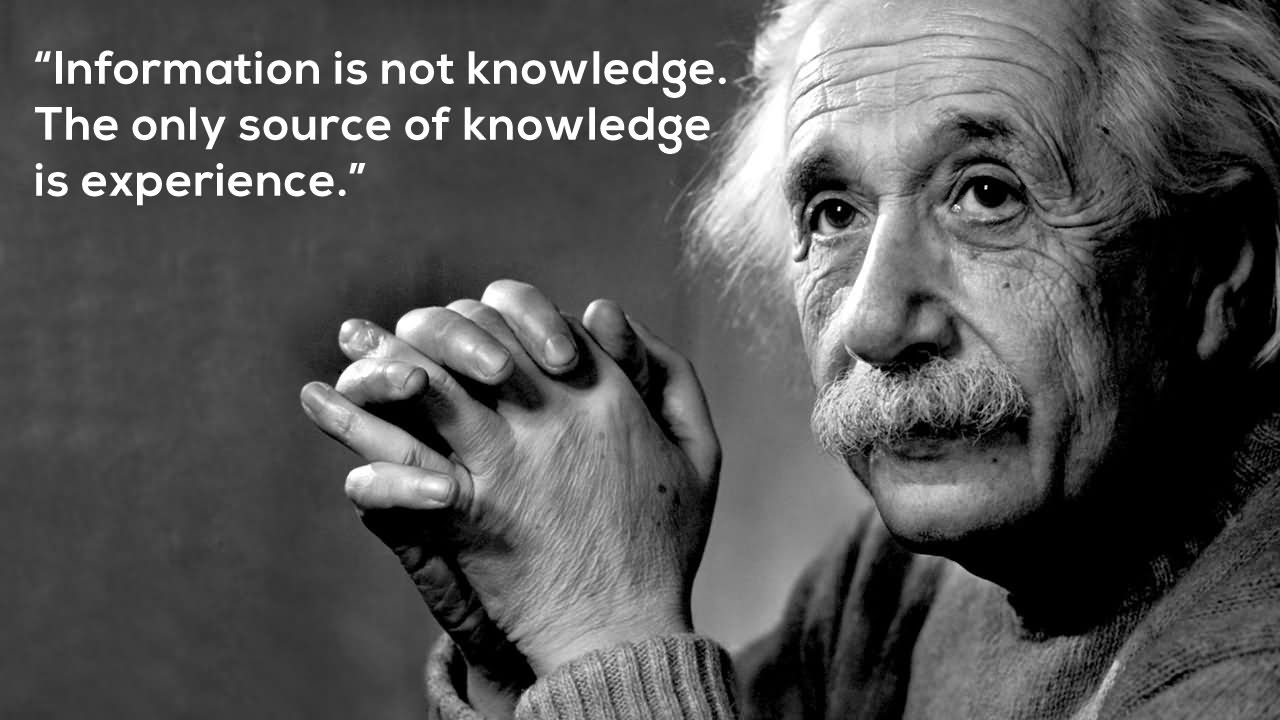
Thought experiment:
Imagine
if you were invited to attend a concert by a world famous performing
artist in a genre you are unfamiliar with - let's suggest a performance
of the ballet "Swan Lake" by the (Russian) Royal Bolshoi Ballet company
performing at the Royal Opera House, in Covent Garden, London.
BUT,
for the purposes of this experiment you are deprived of all your senses
except touch. You can hear nothing, see nothing, smell nothing -
all you have is the sense of touch.
I meet you after the event and ask you to describe the experience...
What are you going to tell me..?
Consider the following:
# Conscious thinking is limited.
- Human intelligence has serious limitations
# Our educated obsession with words ensures we confuse being informed about with having experience of.
- We confuse the world as-it-is with the world as-it-is-thought-about and described.
- We’re like a person eating the menu instead of the meal.
# The double bind of language and articulation.
- For everything we gain by being able to verbalize and
articulate a direct experience, we lose an equal if not greater amount of the
full meaning of that experience by the very process of articulation.
- This lost meaning becomes exacerbated as the words we use to describe something are always heard or read within a context, a framing, a belief and a language.
# The erroneous view that thought can encapsulate reality or truth.
- Dogmas – religious, political and scientific, all beliefs – arise out of the erroneous belief that thought alone can encapsulate reality or the truth.
# If we shift our focus to the meaning that lies behind or beyond the words:
- the meaning that transcends the words...
- the meaning that can only be fully grasped by experiencing it...
...then everything changes and divisions and barriers evaporate as we move beyond belief.
Closing observations on finding the deus ex machina:
- Science and Experience are not mutually exclusive.
- Rationality and scientific method - can be applied to the experience of consciousness.
- Is there a Method Three - a way of combining both methods in a sequence that is most appropriate to the situation being researched?
In the same way that the social sciences use qualitative research methods as well as the "hard science" quantitative methods, can there be a modality of research into consciousness using noetic insights based on experience?
[The term noetic is from the Greek noēsis/ noētikos, meaning inner wisdom, direct knowing, intuition, or implicit understanding.]
Thus a "multi-modality" methodology could be applied to research into consciousness in this sequence:
- Noetic insights based on experience of consciousness.
- Qualitative research into these insights and experiences.
- Quantitative research into aspects of the qualitative findings, where this method can be applied.
Taking this one stage further, does this "multi-modality" approach to consciousness offer us, as non-specialist lay-people, a practical and balanced approach to expanding our experience and understanding of consciousness?
Beliefs And The Deus Ex Machina
The Impact of Beliefs On Consciousness
In Definition Of Belief we noted that:
- "A definition of belief is something that we accept and believe to be true, but that is not necessarily something that can be proven to be true."
- A useful model suggests that every belief has the same basic three-part structure and that can be stated as this:
STRUCTURE OF A BELIEF Cause –> Effect –> Meaning So, if THIS causes ... Then, the effect is... And THAT means... So to take a simple example: I am feeling miserable and unhappy [cause] I have a bottle of Rioja [effect] and that relaxes me and makes me feel good [meaning].
Accepted scientific beliefs
The human tendency to hold an over-arching belief in "correct" beliefs and the consequent polarised positions is not limited to the domains of religion, politics and other societal and tribal beliefs, it applies to science as well.
Science and Ideology have long had a complicated relationship.
As Dr William Lane Craig observed in an interview on 'Scientific Faith':
"...there are certain truths that science accepts that cannot be themselves scientifically proven. These would include things like the validity of the laws of logic, mathematical truth, the fact that the external world exists, the fact that the past is real and not an illusion of human consciousness, the fact that the world is so structured that science can describe and predict the way the physical world will unfold.
None of these things can be scientifically proven. They are presuppositions or assumptions that scientists make... and so the scientist has to simply accept certain foundational truths as it were."
Noetic science beliefs
'Nearly 50 years ago, Dr. Edgar Mitchell became the sixth person to walk on the moon. As a member of the Apollo 14 mission, his purpose was to conduct in-depth research on the lunar surface. As his mission came to an end, however, an entirely new purpose emerged—one that would define his life for decades to come and contribute to the awakening of the planet.
As his spaceship traveled back from the moon amidst the vast darkness of the cosmos, Dr. Mitchell’s eyes became fixed on the blue sphere we call home. As he neared Earth, he was enveloped by a profound sense of universal connectedness.'
"I realized that the story of ourselves as told by science—our cosmology, our religion—was incomplete and likely flawed. I recognized that the Newtonian idea of separate, independent, discrete things in the universe wasn’t a fully accurate description. What was needed was a new story of who we are and what we are capable of becoming."
Dr. Mitchell’s transformative experience led him to focus on the development of Noetic Science leading to the foundation of the Institute of Noetic Sciences (IONS) in 1973.
Hardwired for transcendence
The human tendency to see patterns, connections and causation where there may be none is consistent with the findings of Neuroscientist Dr Andrew Newberg [and others] that the human brain appears to be hardwired for self-maintenance and self-transcendence.
The consequence of this innate tendency to see patterns and meanings where there maybe none leads to interesting positions and outcomes.
Magical thinking
The tendency to assume and assert correlations and causations where none exists is referred to as magical thinking or superstition. Even though erroneous it can nevertheless appear true as a result of self-fulfilling prophecy or the power of positive expectation.
Some would argue that if it works so what? There is much evidence to confirm the positive power of magical thinking and Mathew Hutson has written a book on the subject: "The 7 Laws of Magical Thinking: How Irrational Beliefs Keep Us Happy, Healthy, and Sane"
Faith Traditions
I am not suggesting that faith traditions are necessarily synonymous with magical thinking.
However, my fairly extensive lived experience across a wide spectrum of positions within the two faith traditions of Christianity and Buddhism has shown me that it is present in both, and I suspect that is true for all faith traditions.
One of the key things I have observed and experienced first hand, as a correlation and causation, is the power of these traditions to bring comfort, inspiration and motivation to people.
Similarly I have observed and experienced the negative and damaging effects that can be directly attributable to these traditions.
How do we reconcile beliefs in our approach to consciousness?
So how do we reconcile these factors: the huge human capacity for self deception, delusion and irrationality and the enormous positive and negative power of beliefs to our approach to consciousness?
I want to offer you 2 key thoughts:
1. Consider that contrary to what is claimed, no belief tradition of any persuasion has a monopoly on the truth.
2. Consider the advice of Buddha on how we should handle beliefs which can be summarised as:
Engaging With The Deus Ex Machina
Building Relationship With Consciousness
Guidelines for getting started
As a way forward, I propose the following guidelines:
- You accept that the true nature of consciousness is unprovable both in terms of objective reality "out there" and subjective reality "inside you".
- Accept that we will never categorically get a definitive handle on the truth about consciousness and reality - so if you can accept this, then approach this in an experimental frame of mind.
- Adopt the middle path and try to maintain a balanced approach between rationality and spirituality in understanding and engaging with consciousness.
- By middle path, I mean not being drawn into extreme positions on the reductionist/hard science perspectives on the one side and the "woo woo"/"new age"/ magical thinking perspectives on the other side.
- Wear your beliefs lightly, view them as guides and broad terms of reference to be revised and upgraded when your life experience suggests that this is required, rather than regarding your beliefs as immutable certainties that you have to defend at all costs.
- Move forward in a spirit of enquiry, adventure and learning, taking note of your experiences with consciousness and not rushing to judgements and early conclusions.
- Share and discuss your experiences with others, ask questions, listen and learn, and expand this process to include reading as widely as you can about other people's experiences from the past as well as the present.
- Pay attention to people's experiences in traditions and belief systems that are different or alien to yours. For example, you may not believe in God, you may not pray, but pay attention to the astonishing life stories of people within the Christian belief system who have walked very close with consciousness and who have seen and done amazing things. The same equally applies to other belief systems.
- Pay attention to the experience of people from no particular belief tradition who may struggle to articulate their experiences because they do not have the language, models of understanding and the framing to be able to express themselves clearly.
- Adopt an experimental approach and test and observe clearly your experiences with consciousness.
How do you engage with consciousness? How do you get started?
Firstly you have got to want to.
Through the heart not the head
The gateway to engaging with consciousness is not through the conscious mind, it does not involve your ego. It all starts with some form of inner prompting. This is felt in your heart not your head.
Personally I have found that the regular practice of meditation and a continual practice of mindfulness has created the space to allow this to happen. For some people there is sudden and amazing flash of insight such as that shared by Dr Edgar Mitchell [the astronaut and founder of the Institute of Noetic Science] in the video clip above.
For others of us this is a more gradual and developing awareness.
My personal experience of getting started
I have written in some detail about my personal entry point to all this, when I really started to take consciousness seriously in:
What Does It Mean To Take The Red Pill?
"The journey of personal development and spiritual growth starts by developing a good working relationship with your mind.
The
initial stages of this process focus on the conscious mind and working
on all the things you can do to develop a more resourceful mind.
As
you engage with this process you soon realise that your mind has many
unconscious aspects that you need to make conscious and work on.
Then, at some point, you become aware of your spiritual or higher self.
The best way to think of this is as your personal portal to the universe and "everything out there".
Taking the red pill describes the point at which you seriously start to engage with your higher self..."
Finding the language to express this
One of the difficulties of sharing these experiences as accurately and honestly as possible is finding the right language, finding the most neutral and balanced way to express this without falling into the trap of using religious or faith based language on the one hand or being overly analytical on the other hand.
As we noted above, words are limited and for whatever they include they leave out a greater amount. What I am looking for is the language of ineffability.
Of all the documented experiences I have read that are expressed in neutral and what I would call balanced language, one of the best descriptions is shared by personal development blogger Steve Pavlina in a series of 3 videos to which I have created key point summary notes to accompany each video.
This link will take you to the section on "The Red Pill" article with the links to the videos and notes: The Red Pill Videos and Notes
These videos are about 45 mins each, so please allow yourself the time to watch and read the accompanying notes, digest and reflect. Steve Pavlina is very lucid and articulate and makes a far better job of expressing this than I ever could.
The profile of a person connected to consciousness
The late Dr Wayne Dyer wrote a book: "The Power Of Intention" in which he devotes a whole chapter to "A Portrait Of A Person Connected To The Field Of Intention".
Dyer sees consciousness as beyond neutral and full of intention. In his spiritual world view people who are connected to consciousness live their lives on purpose and by intention in a co-creative relationship with consciousness.
Dyer is approaching this with a belief system and there are subtle undercurrents of the law of attraction, however Dyer had an analytical and rational approach and researched his material extensively.
Personally I am comfortable with his approach and his framing of engaging with consciousness.
If we change some of the words slightly and substitute the word "consciousness" with his use of the phrase "the field of intention" and "source of life" we can see this a good description of someone who is engaged with and connected to consciousness. Dyer describes such a person as:
"A person who lives in a state of unity with the Source of all life
doesn't look any different from ordinary folks. These people don't wear a
halo or dress in special garments that announce their godlike
qualities.
But when you notice that they go through life as the
lucky ones who seem to get all the breaks, and when you begin to talk to
them, you realize how distinctive they are compared to people living at
ordinary levels of awareness.
Spend a few moments in
conversation with these people who are connected to the power of
intention and you see how unique they are."
I have prepared an easy to read 7 page download PDF summary:
A Portrait Of A Person Connected To The Field Of Intention
Consciousness as The Energy Of Life As a belief/working hypothesis I call this The Energy Of Life. So in this model : To develop my hypothetical and metaphorical model one step further: "The journey to Consciousness does not consist in arriving at a new destination
where a person gains what he did not have, or becomes what he is not.
The 4 Keys To Working With The Energy Of Life From here on, in this section, everything I say can only be experienced.
Communicating With The Deus Ex Machina
The Language Of Consciousness
We live in a universe of energy - literally and not just
metaphorically.
To paraphrase an observation by Aldous Huxley:
It
consists in the dissipation of one’s own ignorance concerning one’s
self and life, and the gradual growth of that understanding which begins
the spiritual awakening.
The finding of Consciousness is a coming to one’s self."
I want to close this article and leave you with one last belief/working hypothesis and another model of Consciousness that is framed only for your heart. As we discussed and agreed earlier on in this article, we wear our beliefs lightly, as a guidance only, and not as immutable certainty. So please hear these words in your heart and not your head: Here is a love letter spoken directly to your heart.
Free Download: Deus Ex Machina - Reflection & Action Worksheet Read Further The Wise Advocate - Helping You Achieve The Very Best Outcome Coram Deo - Living In Consciousness The Greatest Love - The Most Important Relationship You Will Ever Have Everything Is Connected And Why You Don't Feel It Noetic Science - Dr Edgar Mitchel and the Institute of Noetic Science Noetic Science - Dr Edgar Mitchel and the Institute of Noetic Science Everything Is Connected And Why You Don't Feel It Third Party Resource Experiencing God Directly by Marshall Davis (Book Summary) Return from "Deus Ex Machina" to: Home Page Next Article The Greatest Love - The Most Important Relationship You Will Ever HaveLiving With The Deus Ex Machina
What Living In Consciousness Means
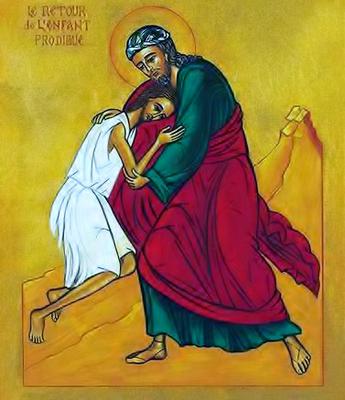
LATEST ARTICLES
Staying Committed When You Can't See Progress - The Psychology of Grit
 Uncertainty Is Not The Absence Of Progress, Only The Absence Of Reassurance. One of the most destabilising experiences in modern life is not failure, but uncertainty and staying committed when you can…
Uncertainty Is Not The Absence Of Progress, Only The Absence Of Reassurance. One of the most destabilising experiences in modern life is not failure, but uncertainty and staying committed when you can…The Battle For Your Mind - How To Win Inner Freedom In A Digital Age Of Distraction
 From External Events to Inner Events. We often think of “events” as things that happen out there: the traffic jam, the rude comment, the delayed email reply. But what truly shapes our experience is wh…
From External Events to Inner Events. We often think of “events” as things that happen out there: the traffic jam, the rude comment, the delayed email reply. But what truly shapes our experience is wh…How to See Your Thoughts Without Becoming the Story
 A Practical Guide to Thought-Awareness. You can spend your life inside the stories of your mind without ever learning how to see your thoughts clearly and objectively. Most of the stuff we tell oursel…
A Practical Guide to Thought-Awareness. You can spend your life inside the stories of your mind without ever learning how to see your thoughts clearly and objectively. Most of the stuff we tell oursel…The Collison Decision Matrix - A Simple Framework for Better Choices
 The Collison Decision Matrix Is A Practical Everyday Thinking Tool. Most of us spend a surprising amount of time worrying about decisions. From small ones such as what to wear, what to eat, what to te…
The Collison Decision Matrix Is A Practical Everyday Thinking Tool. Most of us spend a surprising amount of time worrying about decisions. From small ones such as what to wear, what to eat, what to te…The Power Of Asking The Right Question
 The Power Of Asking The Right Question Lies In The Quest For Insight. To experience the power of asking the right question you must develop the practice of asking questions. The best way to improve th…
The Power Of Asking The Right Question Lies In The Quest For Insight. To experience the power of asking the right question you must develop the practice of asking questions. The best way to improve th…Site Pathways
 Here is a site pathway to help new readers of Zen-Tools navigate the material on this site. Each pathway is based around one of the many key themes covered on this site and contain a 150 word introduc…
Here is a site pathway to help new readers of Zen-Tools navigate the material on this site. Each pathway is based around one of the many key themes covered on this site and contain a 150 word introduc…How To Live With Contradiction - Beyond Thought Let Stillness Speak
 A major impact on so many peoples' lives is the situational contradiction of unfilled realistic expectations. So where does all this leave us? Well here we are, with mental equipment that is more lim…
A major impact on so many peoples' lives is the situational contradiction of unfilled realistic expectations. So where does all this leave us? Well here we are, with mental equipment that is more lim…How To Trust The Process Of Mindfulness - Right Now
 In mindfulness, the process isn’t some distant goal — it's what is happening right now. When we talk about how to trust the process of mindfulness the credibility of the process is heavily dependent…
In mindfulness, the process isn’t some distant goal — it's what is happening right now. When we talk about how to trust the process of mindfulness the credibility of the process is heavily dependent…Inner Mastery For Outer Impact - Mental Clarity For Effective Action
 Insights only matter if they translate into consistent action. In a world crowded with quick fixes and motivational soundbites, the theme “Inner Mastery for Outer Impact” calls us to something more e…
Insights only matter if they translate into consistent action. In a world crowded with quick fixes and motivational soundbites, the theme “Inner Mastery for Outer Impact” calls us to something more e…The Wise Advocate - Helping You Achieve The Very Best Outcome
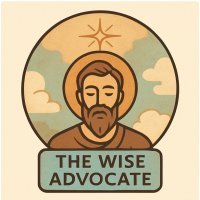 The focus of your attention in critical moments of choice either builds or restricts your capacity for achieving the best outcome. When we talk of 'The Wise Advocate' its easy to think of the consigl…
The focus of your attention in critical moments of choice either builds or restricts your capacity for achieving the best outcome. When we talk of 'The Wise Advocate' its easy to think of the consigl…Trust The Process - Beyond The Cliche
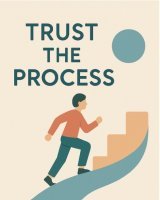 The phrase "trust the process" has become a cliche, the woo-woo mantra of the "self help" industry. Those three little words feel like they ought to mean something useful but hidden behind them are a…
The phrase "trust the process" has become a cliche, the woo-woo mantra of the "self help" industry. Those three little words feel like they ought to mean something useful but hidden behind them are a…The Dopamine Delusion - Why Anticipation Beats Achievement
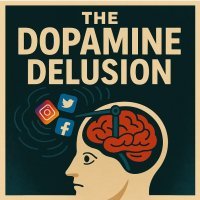 The thrill we feel is not in the having, but in the wanting. The more we have, the more we want. The more things we acquire and the easier things get for us, the more discontent we feel. The more spo…
The thrill we feel is not in the having, but in the wanting. The more we have, the more we want. The more things we acquire and the easier things get for us, the more discontent we feel. The more spo…
